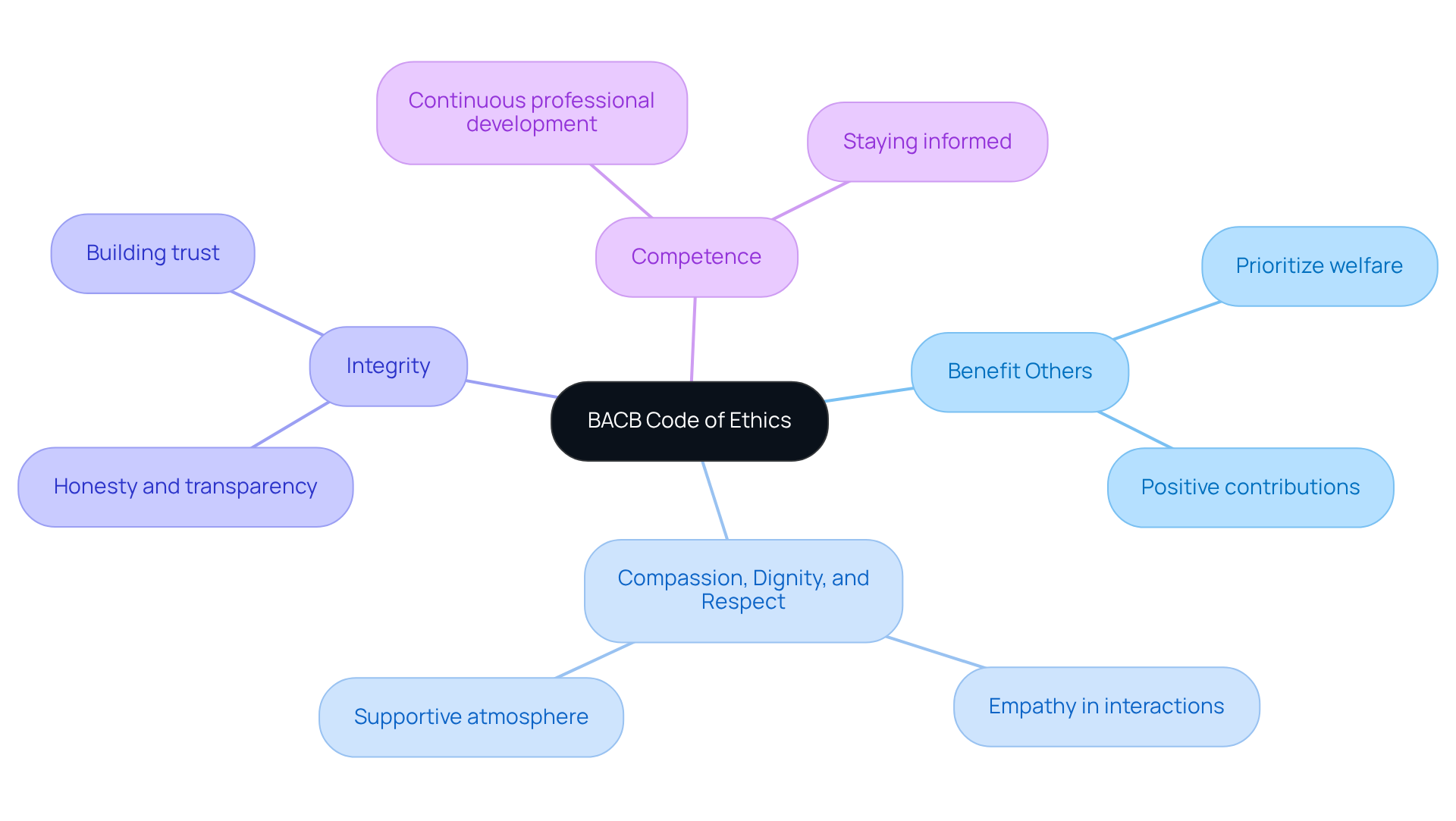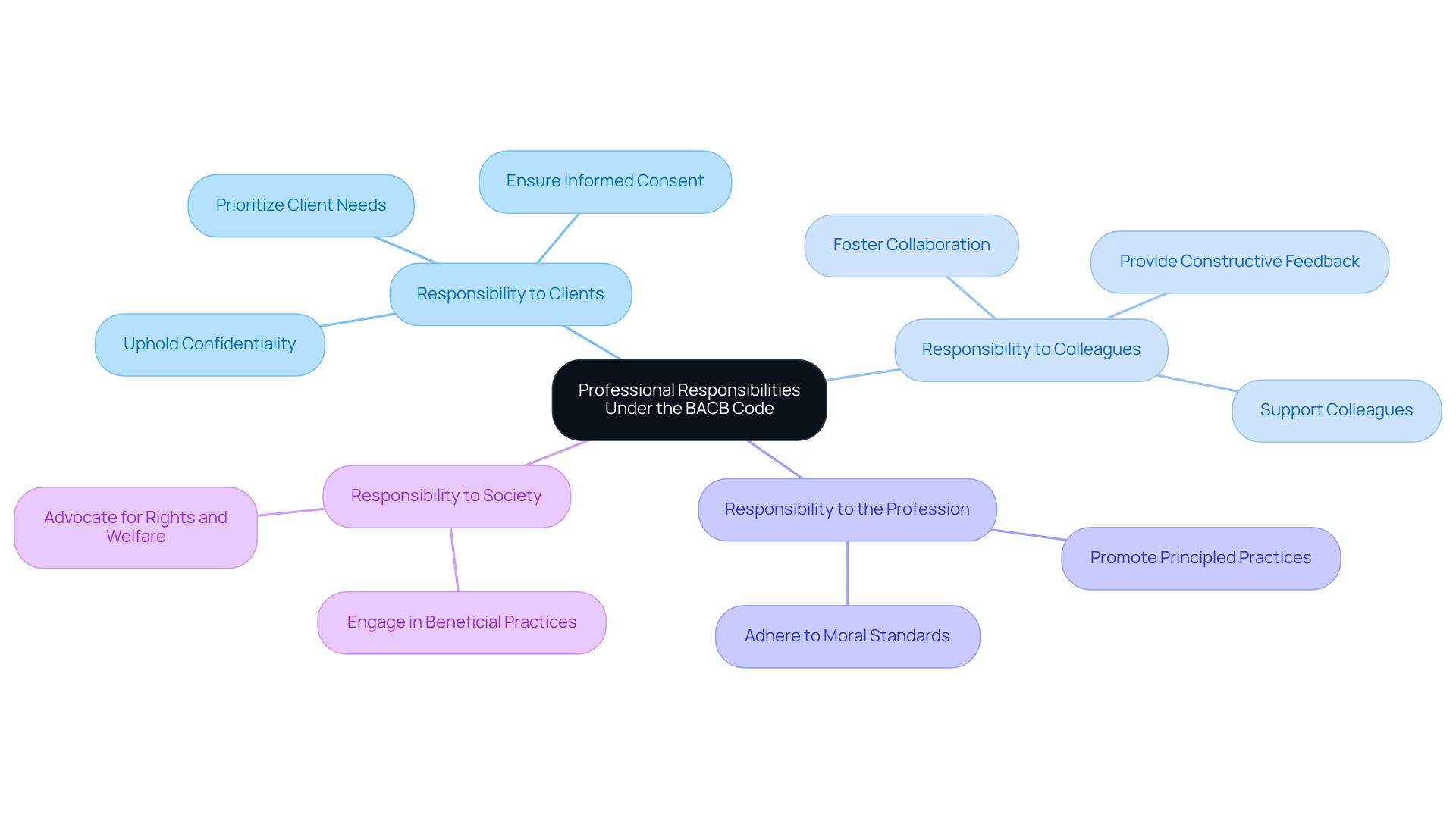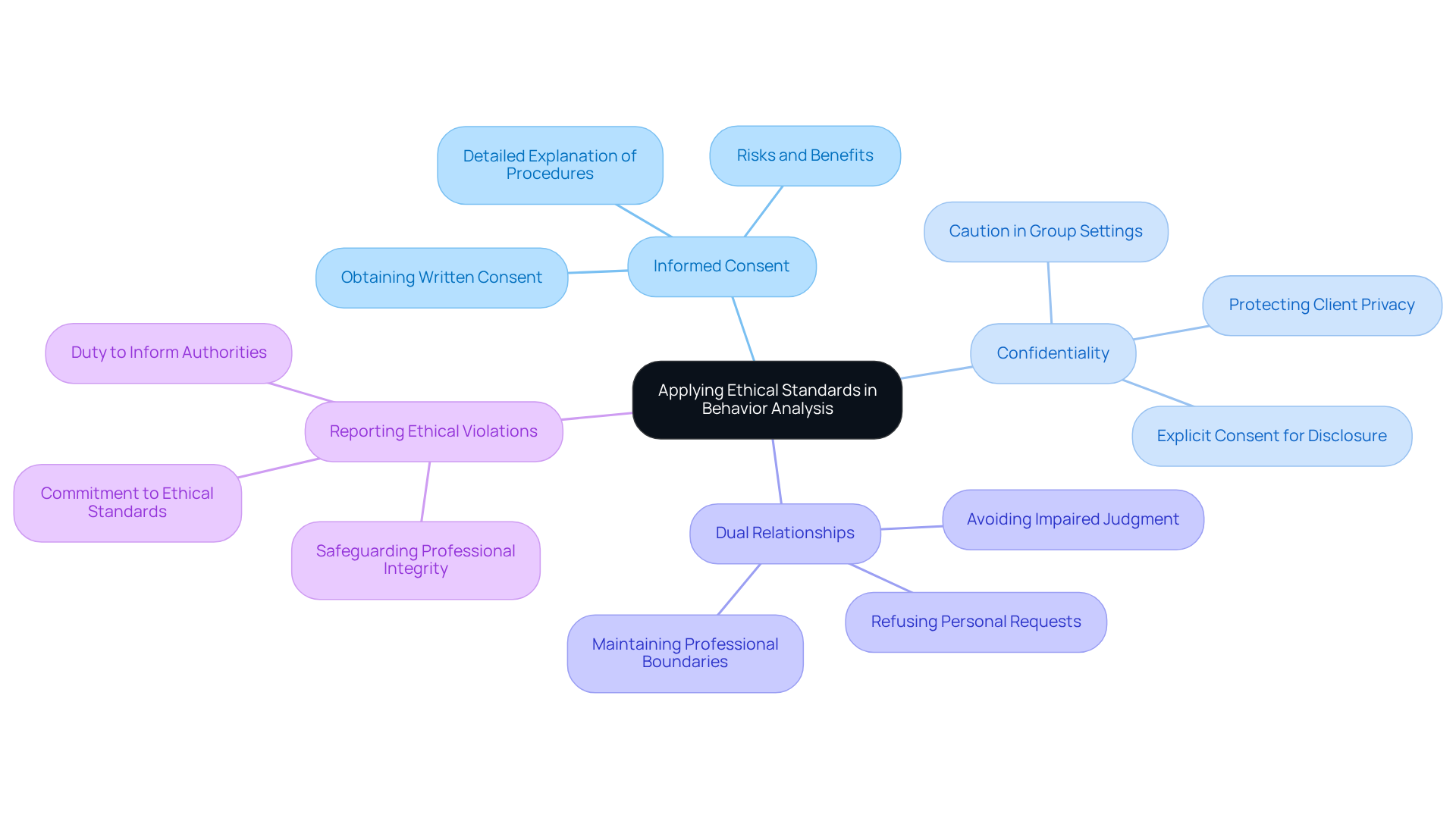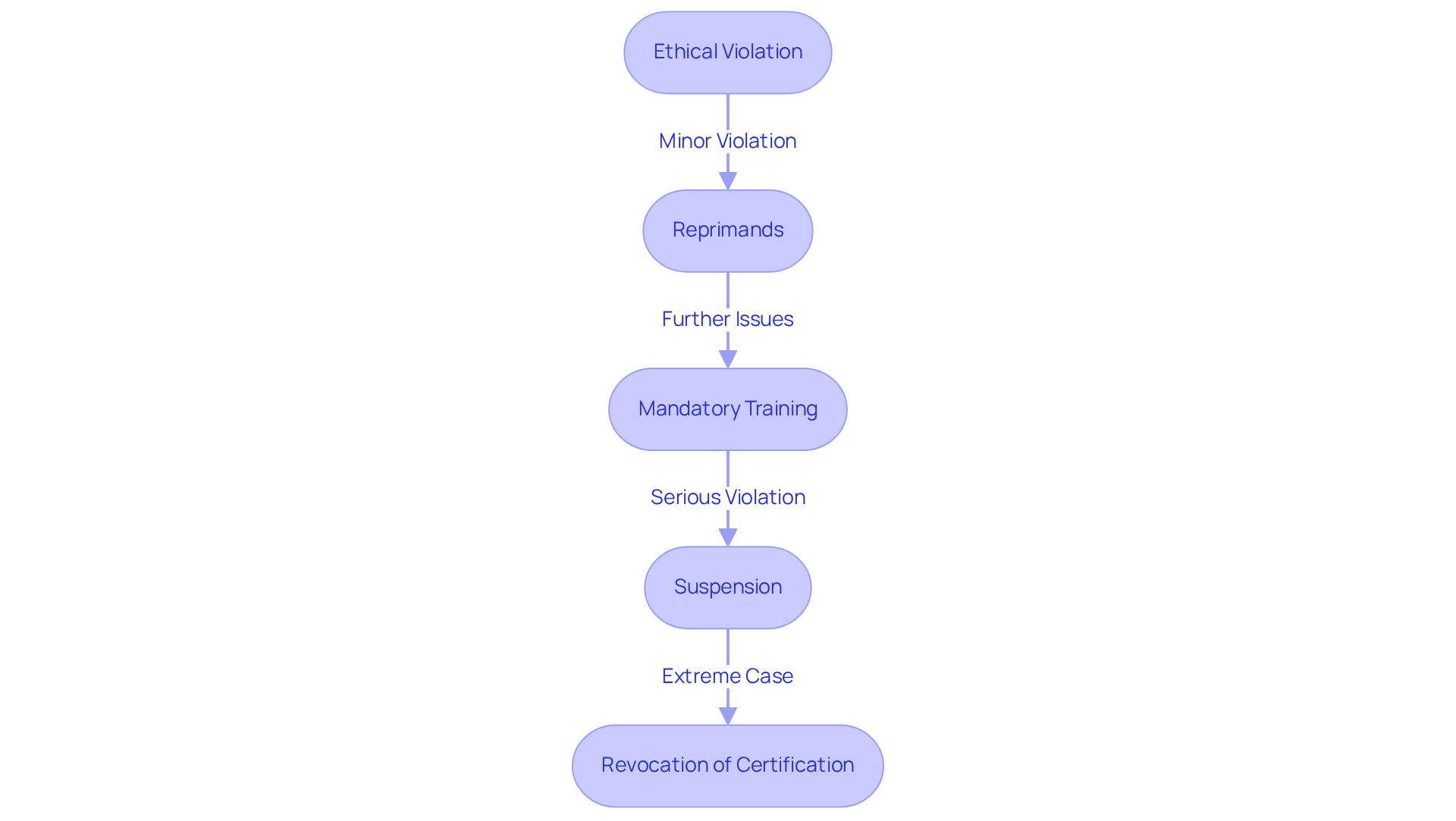September 9, 2025

The BACB Code of Ethics for Behavior Analysts is anchored in four foundational principles:
Understanding these principles, along with the associated professional responsibilities, is essential for behavior analysts. This understanding not only helps maintain ethical standards but also safeguards client welfare and upholds the integrity of the profession. Are you aware of how these principles can enhance your practice? Reflecting on their significance can lead to improved outcomes and greater trust in your professional relationships.
Understanding the ethical landscape in behavior analysis is not merely a professional requirement; it embodies a commitment to the well-being of clients and the integrity of the field. The BACB Code of Ethics serves as a guiding framework, outlining essential principles that every behavior analyst must master to ensure responsible practice. Yet, practitioners often face the challenge of navigating real-world scenarios where ethical dilemmas arise.
How can they effectively apply these standards while maintaining professional integrity? This article explores the core principles, responsibilities, and practical applications of the BACB Code of Ethics, equipping behavior analysts with the knowledge needed to uphold the highest ethical standards in their practice.
The BACB Code of Ethics is founded on four core principles:
Grasping these principles is imperative for any BCBA, as they form the core of the BACB Code of Ethics that serves as the ethical foundation of practice in .

Behavior analysts have several key professional responsibilities under the BACB Code that are essential for maintaining integrity and professionalism in the field:
By grasping these duties, practitioners can navigate their professional environment with assurance and honesty, ultimately enhancing their effectiveness and the impact they have on those they serve.

To effectively apply ethical standards, behavior analysts must consider several critical scenarios:
These scenarios underscore the significance of moral principles in daily practice. They highlight the necessity for practitioners to remain vigilant and proactive in their ethical responsibilities. Are you prepared to uphold these standards in your practice?

The BACB Code delineates several potential consequences for ethical violations, which include:
Recognizing these consequences underscores the critical nature of ethical compliance and the importance of the in upholding professional standards. Behavior analysts must acknowledge that their actions not only impact their careers but also the well-being of their clients and the integrity of the profession.

Mastering the BACB Code of Ethics is essential for behavior analysts, as it lays the groundwork for ethical practice and professional integrity. The core principles of benefiting others, treating individuals with compassion and respect, behaving with integrity, and ensuring competence are not merely guidelines but fundamental tenets that shape the behavior analyst's role in enhancing the lives of those they serve.
Throughout the article, key responsibilities under the BACB Code have been highlighted, emphasizing the importance of:
Furthermore, real-world scenarios illustrate the practical application of these ethical standards, demonstrating how informed consent, confidentiality, and the avoidance of dual relationships are crucial to maintaining professional boundaries and trust.
In conclusion, the significance of adhering to the BACB Code of Ethics cannot be overstated. Ethical compliance not only protects the well-being of clients but also fortifies the reputation of the profession as a whole. Behavior analysts are encouraged to actively engage with these principles and responsibilities, ensuring that their practice reflects the highest ethical standards. By doing so, they contribute to a more ethical and effective practice in behavior analysis, ultimately leading to better outcomes for individuals and society.
What are the core principles of the BACB Code of Ethics?
The BACB Code of Ethics is founded on four core principles: Benefit Others, Treat Others with Compassion, Dignity, and Respect, Behave with Integrity, and Ensure Competence.
What does the principle of "Benefit Others" entail?
The principle of "Benefit Others" emphasizes that behavior analysts must prioritize the welfare of those they serve, ensuring their actions contribute positively to individuals' well-being.
How does the BACB Code of Ethics promote respect in interactions?
The principle of Treat Others with Compassion, Dignity, and Respect underscores the importance of empathy and regard in all interactions, fostering a supportive atmosphere for individuals.
What is meant by behaving with integrity according to the BACB Code of Ethics?
Behaving with Integrity means that analysts are expected to uphold honesty and transparency in their professional dealings, which is vital for building trust with clients and colleagues.
Why is ensuring competence important in behavior analysis?
Ensuring competence is crucial because continuous professional development is necessary for behavior specialists to stay informed about the latest research and practices, allowing them to provide the highest quality of care.
Why is understanding these principles important for BCBAs?
Grasping these principles is imperative for any BCBA, as they form the core of the BACB Code of Ethics, which serves as the ethical foundation of practice in ABA therapy.
Our expert recruitment strategies and AI-driven sourcing ensure that you receive top-notch candidates quickly, without compromising on quality. Whether you’re looking for BCBAs, Clinical Directors, or RBTs, we’ve got you covered.